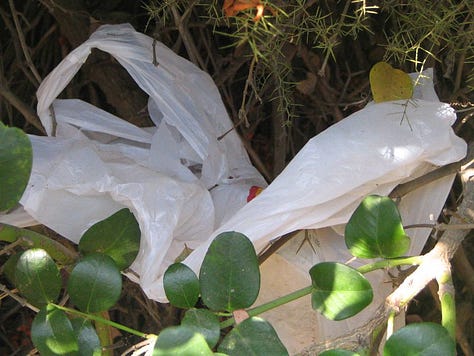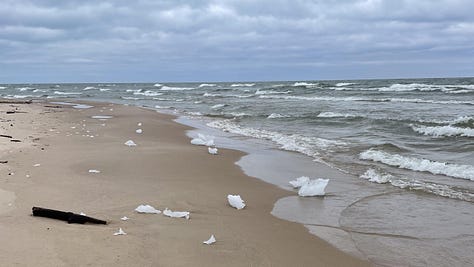Green Lights Feb. 23: Top stories this week
Don't miss a single story of the best from Callaway Climate Insights.






. . . . Welcome back to Green Lights. Here’s our weekly roundup of the best of Callaway Climate Insights. This week, David Callaway looks at why investors are getting left in the shade despite increasing solar capacity, and explains the departure of Wall Street’s big firms from elite clubs such as Climate Action 100+ and the Glasgow Financial Alliance for Net Zero. Plus, we’ve got record rainfall everywhere from Death Valley to the Arctic Circle. Here are the highlights in a simple and convenient format that makes it easy for our readers. It’s also easy to subscribe.
. . . . Everywhere you look in climate circles these days, solar energy is powering renewables to new records, David Callaway writes. Great news to be sure, but investors in U.S. solar securities are being left behind, the victims of local political squabbles with utilities and corrupt sales practices. The disconnect between the increased capacity and the profits and share prices of these companies is something that needs to be right-footed.
. . . . Ghost lake: An ancient lake has reemerged at Death Valley National Park’s Badwater Basin, thanks to extraordinarily heavy (for Death Valley) rainfall. As of last week, the temporary Lake Manly was about 6 miles long, 3 miles wide and a foot deep. The National Park Service says this is one of the very, very rare moments when visitors can actually kayak in the desert.
. . . . The SEC’s new fund names rule, which stipulates that a fund must direct 80% of its assets to investments that match the core mission of its name, is having little impact after six months, writes Mark Hulbert. While it may be easy to match to names such as small cap or international, matching to ESG stocks is harder because of the vagueness of the name itself. Just ask the iShares ESG Aware MSCI USA ETF. . . .
. . . . The drought that has plagued the Panama Canal and wiped away more than a third of its traffic has left the shipping industry scrambling for alternatives, including a proposal to dig a new canal across Nicaragua, writes Mike Molinski. Officials in Panama’s neighbor have been pitching the idea for more than a decade to little interest. But with the Panama Canal expected to cost its host as much as $700 million in lost business this year, any ideas are worth looking at. . . .
. . . . Some environmentalists and retailers thought reusable plastic shopping bags were a good solution. Turns out that was a mistake. Despite a 60% decline in bag volumes, the use of the heavier plastic bags has resulted in a threefold increase in plastic consumption for grocery bags, writes Matthew Diebel. Remember: reduce, reuse, recycle.
. . . . The departure of Wall Street’s big firms from elite clubs such as Climate Action 100+ and the Glasgow Financial Alliance for Net Zero underscores a more basic reality, says David Callaway. The globalist mindset that elite financiers and government leaders could fix the existential problem of climate change by imposing their will on the rest of the world was always destined to die on populist vines. Climate change is a challenge that needs to be fought at the grassroots level, with financial firms backing innovative entrepreneurial ideas.
More greenery . . . .
The Sierra’s remarkable recovery: ‘Snow drought’ fears overturned in a flash (Los Angeles Times)
Scientists under arrest: the researchers taking action over climate change (Nature.com)
Cooperation is the key: J. Robert Oppenheimer's grandson warns about climate change (CNN)
Anticipating, adapting: Climate change predictions for a warming world (IBM)
Rain Comes to the Arctic: Ice loss, avalanches, and a cascade of troubling changes (Yale Environment 360)







